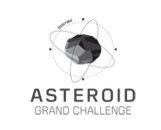| NASA's Asteroid Grand Challenge |
| Written by Sue Gee | |||
| Wednesday, 12 March 2014 | |||
|
NASA, in partnership with Planetary Resources, is offering $35,000 in prizes for develop algorithms to identify Near-Earth Objects, aka asteroids, in images from ground-based telescopes.
Like previous NASA contests it is hosted on TopCoder and will go through several stages with the ultimate aim of finding a solution that will: increase the detection sensitivity, minimize the number of false positives, ignore imperfections in the data, and run effectively on all computer systems The initial contest, which is to create the problem statement to be used in Phase 1 of the Asteroid Data Hunter, which focuses on rejecting false positives from a list of asteroid detections, runs from March 17 to April 2 and has two cash prizes, $1,275 for 1st Place and $638 for 2nd Place This NASA video sets the scene in terms of the threat posed by asteroids to human populations - with a reminder that it was an asteroid that is believed to have wiped out the dinosaurs, and no we are not talking Cobol programmers here:
However the involvement of asteroid mining company Planetary Resources points to the positive potential of asteroids as a source of resources. According to Top Coder: Asteroids pose both a possible threat and an opportunity for Earth: they could impact us, causing damage, OR possibly be mined for resources that could help extend our ability to explore the universe. It explains that the identification of asteroids and other moving bodies in the Solar System has been achieved by detecting changes in images taken at different time referring to the Catalina Sky Survey which uses a crowded field galaxy photometry program that identifies centroids of targets that are distinctly separate from other objects and comments: With the vast amount of data available now flowing from modern instruments, there is no good way for professional astronomers to verify every detection. In particular, looking in the future as large surveys grow ever larger, the ability to autonomously and rapidly check the images and determine which objects are suitable for follow up will be crucial. Over its multiple phases this challenge will devise a solution that improves moving object routines, both in terms of absolute efficiency, but also decrease computation requirements to allow more modest machines to adequately perform moving object detection. The following requirements must be met:
To join in this and other challenges first join the topcoder community. This is free and you can start to enter its contests immediately.These fall into three categories: Develop; Design and Data Science and as well as cash rewards you can earn Reputation Points. New challenges are constantly added and they have scoreboards, leaderboards and discussion boards.
More InformationBe an Asteroid Hunter in NASA's First Asteroid Grand Challenge Contest Series NASA's Asteroid Grand Challenge Series on TooCoderRelated ArticlesNASA Latest Network Algorithm Challenge Top Coder And CloudSpokes Join Forces Coding Contest Outperforms Megablast
To be informed about new articles on I Programmer, install the I Programmer Toolbar, subscribe to the RSS feed, follow us on, Twitter, Facebook, Google+ or Linkedin, or sign up for our weekly newsletter.
Comments
or email your comment to: comments@i-programmer.info
|
|||
| Last Updated ( Monday, 17 March 2014 ) |




